Can a non-stick frying pan be washed in the dishwasher?
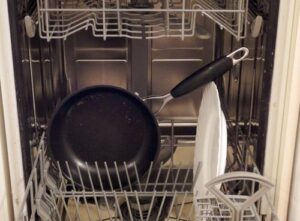 Frying pans with non-stick coating are very convenient to use and are practically indispensable in everyday life for a real housewife. But here’s the problem, they say that you can’t wash non-stick pans in the dishwasher, as this can ruin them. Is it really that serious? Let's try to figure out what will happen to a non-stick frying pan if you wash it in PMM.
Frying pans with non-stick coating are very convenient to use and are practically indispensable in everyday life for a real housewife. But here’s the problem, they say that you can’t wash non-stick pans in the dishwasher, as this can ruin them. Is it really that serious? Let's try to figure out what will happen to a non-stick frying pan if you wash it in PMM.
Should you say no to PMM?
Experts do not undertake to state unequivocally that washing a frying pan with a non-stick coating in a dishwasher is unacceptable. Technologies change for the better almost every day, and many manufacturers of kitchen utensils have probably already created more durable and unpretentious materials. However, in order for the non-stick layer to last longer and not lose its strength, it is necessary to follow a number of rules not only when washing, but when using the product and when caring for it.
It's probably happened that you left a dirty frying pan in the sink, and then couldn't wash off the hardened black layer of fat accumulation on the surface. The whole point is that you need to wash the frying pan right away, without postponing this matter for later. Otherwise, it is useless to wash off the burnt fat; you will only damage the protective surface and the food will begin to burn during the cooking process.
Attention! Immediately after cooking, you still need to let the pan rest a little so that it cools down. Under no circumstances should you try to cool it artificially by placing it in the refrigerator or under cold water.
After cooling, you need to wash the pan in warm water with a soft cloth or sponge with a drop of liquid-based detergent. No hard brushes or metal sponges, or powders with abrasive particles. If you do place a non-stick frying pan in the dishwasher, do not use detergents with a high concentration of active particles.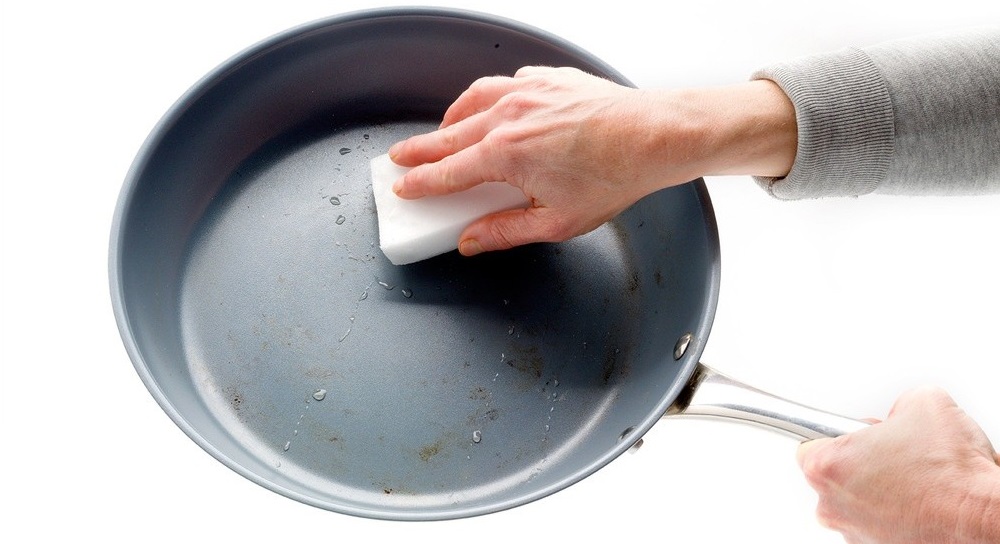
There are a few more general recommendations for handling a frying pan.
- Use wooden or silicone spatulas to stir food rather than metal forks and knives that will scratch the surface.
- When large areas of damage to the layer form on the surface, the frying pan needs to be replaced, otherwise it will be impossible to cook on it.
- Use delicate sponges and detergents.
- Do not cut food inside the pan.
- Non-stick is afraid of temperature changes, so never put a frying pan with food in the refrigerator. You also need to heat the device carefully (even though it is designed for 260 degrees). If you overdo it, the coating will start to fall off. When cleaning a frying pan in the dishwasher, remember this and set the water heating mode to 35-45 degrees, not higher.
Important! Never place a dry frying pan on the fire; always pre-coat the inside with oil to prepare it for heating.
Before using for the first time, soak the frying pan in warm water, then dry it with a towel and grease the inner layer with oil. Then the frying pan will not be damaged, and the cooking process will be simple and comfortable for the housewife. As for the dishwasher, it is not advisable to wash non-stick dishes there, but sometimes it is possible in order to save effort and time. In this case, avoid aggressive detergents and high temperatures.
Pans that will not withstand PMM
One thing that definitely cannot stand washing in the dishwasher is aluminum, cast iron frying pans and Teflon-coated frying pans. Let's look at each in more detail.
Upon contact with water, aluminum begins to darken, deteriorate and produce substances harmful to the human body. They have a bad effect on memory, digestive process, etc. To prevent this from happening, aluminum frying pans are coated with a special protective layer - an oxide film. In the dishwasher, the water pressure is very strong, and the detergents are made on an alkaline basis, all this together destroys the oxide layer, leading to contact of aluminum with water and, accordingly, to health consequences.
As for cast iron frying pans, everyone knows about their feature - a porous surface, almost rough. Before using the frying pan, experienced housewives heat it over a fire with a thick layer of vegetable oil. Oil fills pores and creates a protective film. When exposed to aggressive detergents and hard sponges, this layer is destroyed. As a result, the cast iron coating rusts, and food begins to stick to it especially strongly. Why, even keeping cast iron in water for a long time has a bad effect on its properties.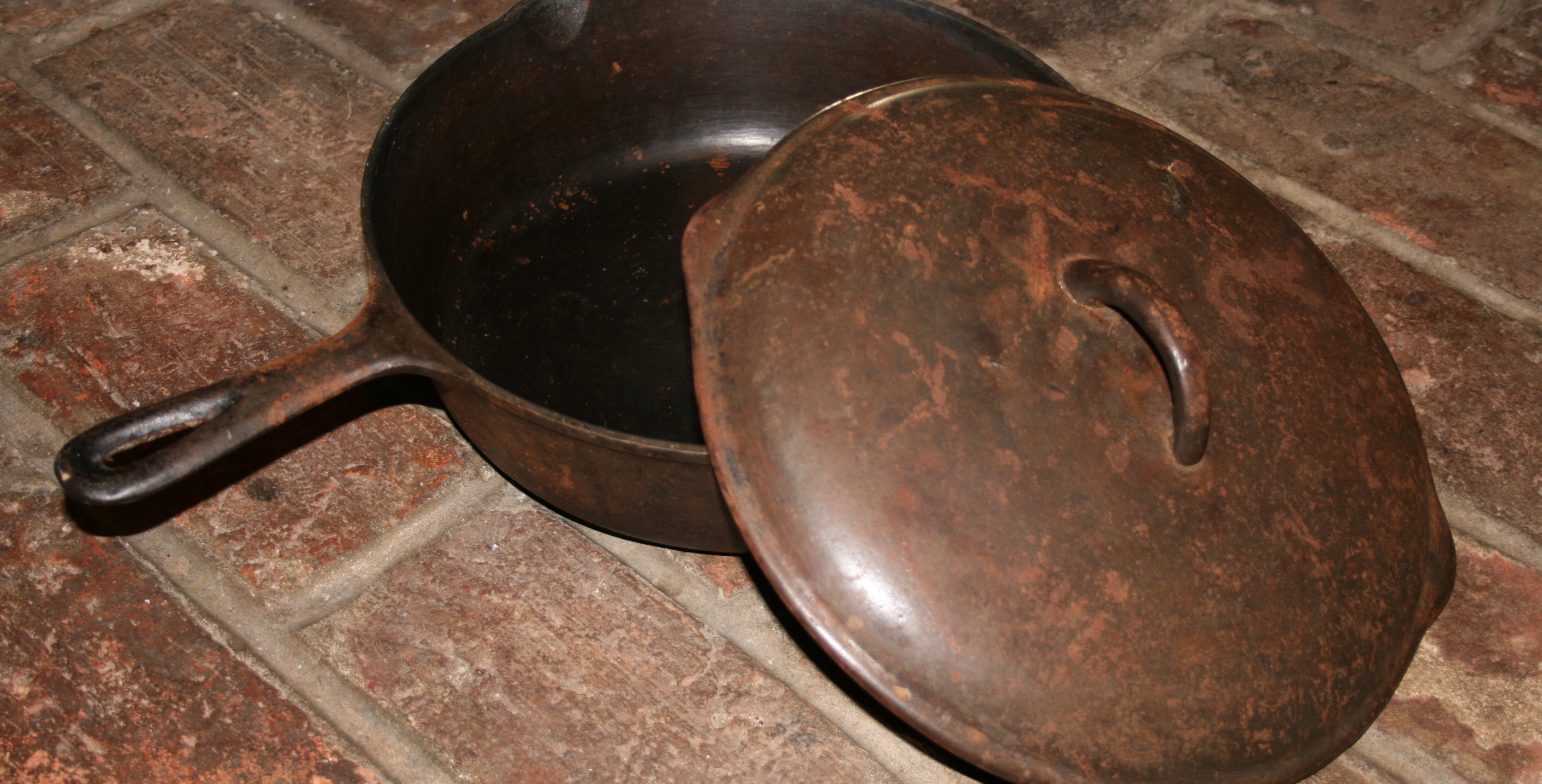
Teflon coating is generally polymeric, that is, synthetic. Such materials are especially poorly resistant to strong mechanical stress. In the dishwasher, such a coating will not only deteriorate, it will completely peel off. Even stirring food while cooking in a Teflon frying pan should only be done with a wooden spatula, otherwise disaster will inevitably occur.
Teflon and cast iron frying pans are easy to wash by hand. The main thing is to adhere to basic rules:
- use only soft rags and sponges;
- Do not use harsh cleaning powders or gels with a high alkali content as detergent.
Sometimes people realize it too late, when they are already taking a rusty frying pan out of the dishwasher. How to revive the material?
- Try to get rid of surface rusty deposits with a soft cloth soaked in warm water.
- Then wait until the inner surface is dry and add oil and salt in large granules. The salt will collect the remaining rust.
- Place it all on medium heat and heat it up. As soon as a characteristic smell appears, immediately turn off the gas and leave the salt to cool.
- Once cooled, remove salt from the pan and generously rub both sides with oil again. This will restore damaged protection.
As for washing aluminum frying pans, this also needs to be done manually, however, in everyday life, cast iron and Teflon samples are much more convenient. Aluminum heats up quickly, and overheating can cause food and fat to burn, which are extremely difficult to clean.
Dishes that are “not afraid” of PMM
Pans made from materials that are resistant to mechanical stress, aggressive detergents and temperature changes can be washed in dishwashers without any problems. These include: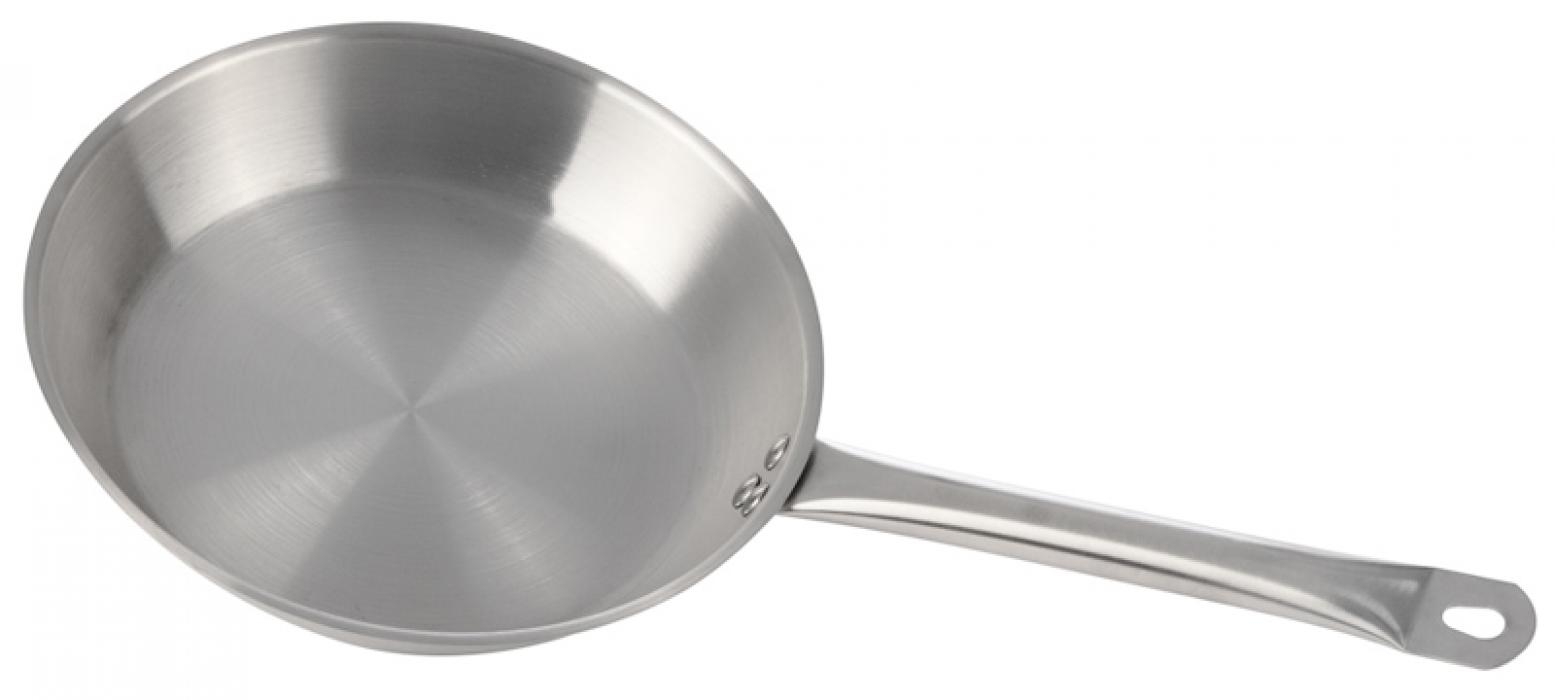
- stainless steel;
- ceramics or enamel (although products with a high content of chlorine, alkalis and acids are best avoided);
- titanium. Choose a gentle regime and more or less delicate products.
You need to place the device in the dishwasher either bottom up or sideways so that all active surfaces are cleaned. It is better to remove plastic handles, if present, so that they do not deteriorate. In addition, it will be easier to place the frying pan in the chamber without them.
Interesting:
Reader comments
- Share your opinion - leave a comment
Categories
Washing machine repair
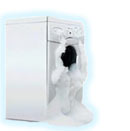

For buyers

For users

Dishwasher

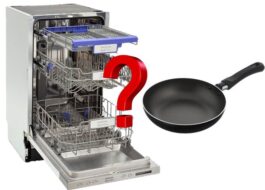
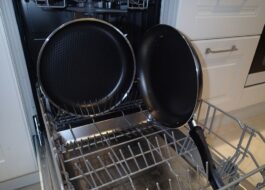
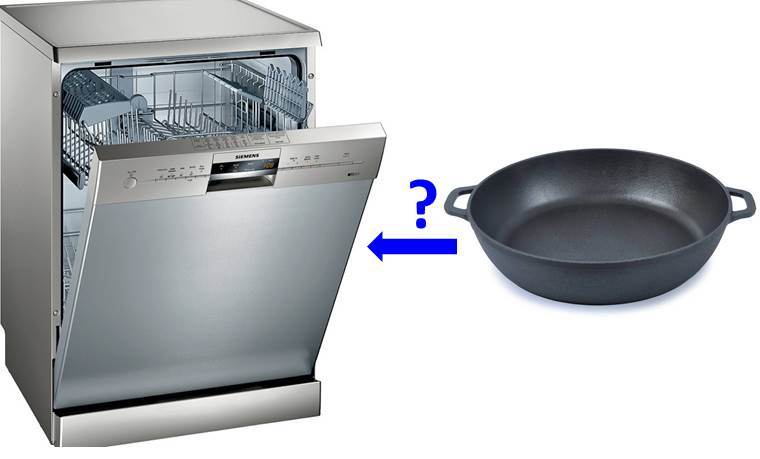

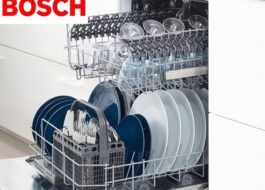
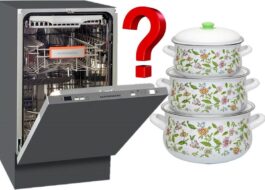
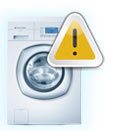
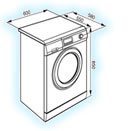
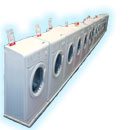
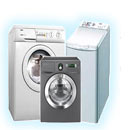
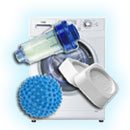


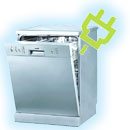


Add a comment